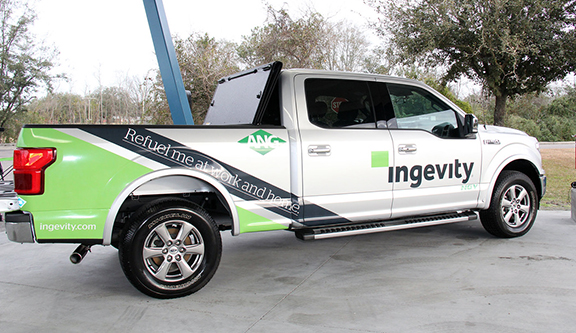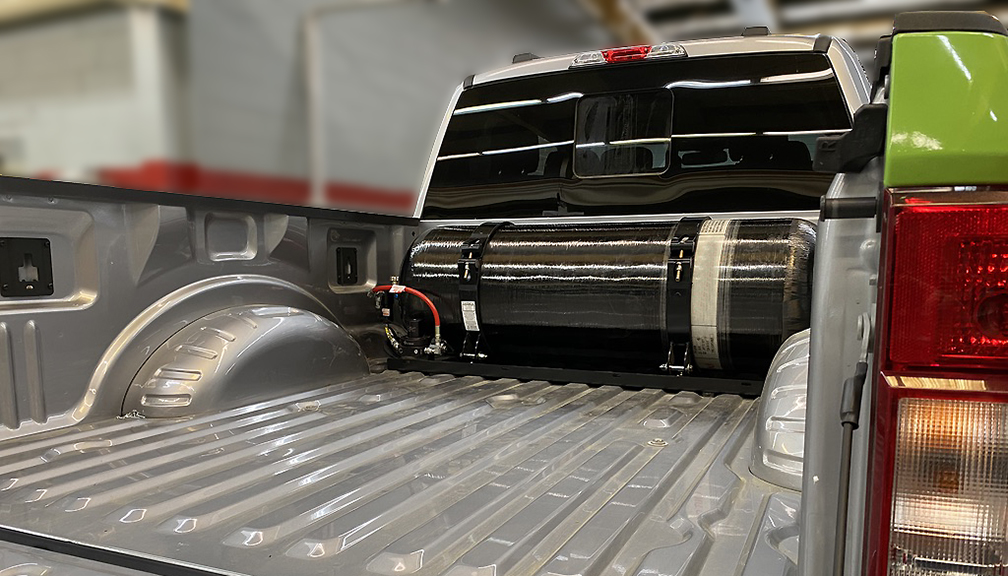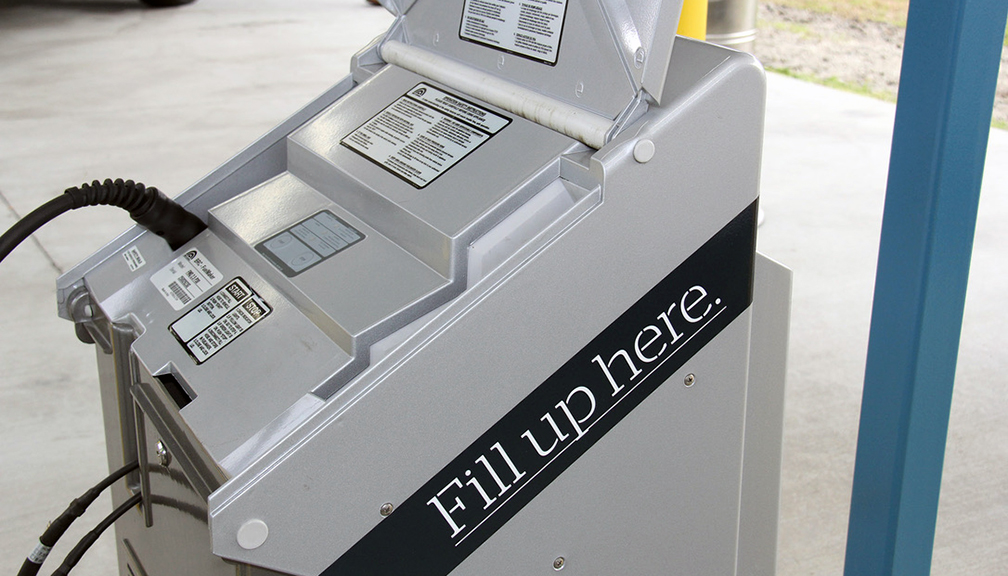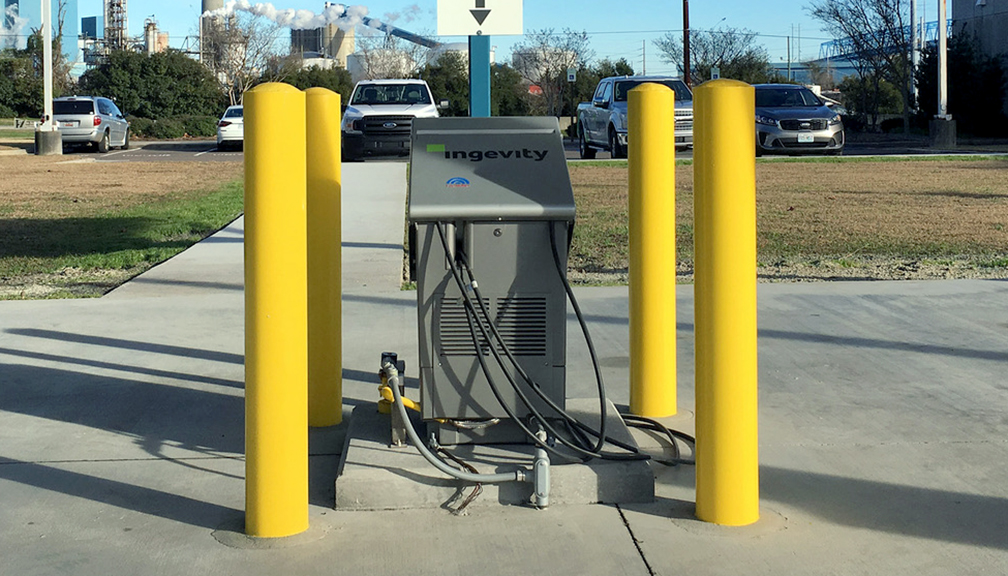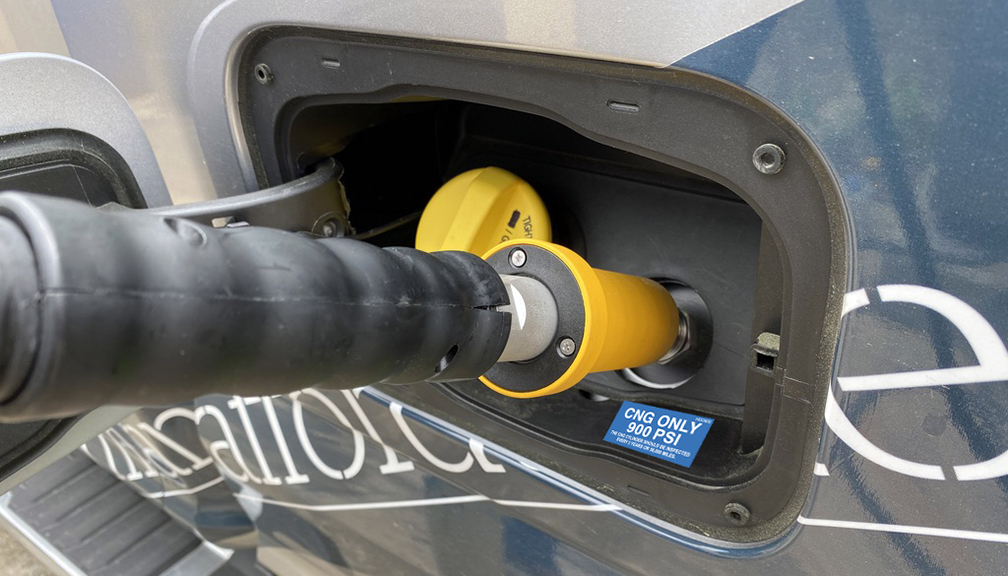
Ford ANG F-150 Pickup Truck 5.0L - Bi-Fuel Adsorbed Natural Gas System
⇛ 2021 - 2023 model year EPA certified, 2024-2025 EPA testing in process. (Natural Gas and Gasoline Operation)
⇛ A 900 psi low-pressure bi-fuel natural gas system (ANG 900 psi tank holds twice the volume of compressed natural gas tank at equivalent pressures).
⇛ All pickup models and trims available: 4WD, 2WD, Regular Cab, Super Cab, Crew Cab, Any Bed Size.
⇛ ANG tank (6 GGE) configured to accommodate typical fleet daily mileage requirement.
⇛ ANG truck still maintains use of conventional gasoline tank eliminating range anxiety.
⇛ ANG system requires gasoline to be in the vehicle at all times for the ANG mode to operate and is designed to predominately operate in ANG mode. The ANG system will operate only if there is natural gas in the vehicle and the gasoline low level light is not illuminated. Gasoline only mode may experience some performance loss, we recommend 93 octane gasoline or higher.
⇛ Includes a standard diamond plate tank cover or optional diamond plate tool box tank cover.
⇛ Includes quarter turn manual shut-off valve located under driver side door and two 1 micron in-line coalescing filters.
⇛ ANG fuel economy equivalent to that of gasoline.
⇛ ANG system warranty of 80,000 Mile/8 year emissions components and 36,000 mile/3 year non-emissions components.
⇛ There is no fuel selector switch.
⇛ ANG tank enables the use of a low-cost fueling appliance supporting private fueling.
⇛ ANG fueling appliance can be installed onsite (e.g., vehicle depot, commercial or office parking lot, etc.) to maximize use of natural gas, savings, and productivity.
⇛ Seamlessly Intergrated with Ford vehicle and maintains all OBD II functionality.
⇛ HOV lane eligible in many states and tax credits may be available, Check with your tax advisor.
⇛ Altech-Eco Natural Gas Vehicle Systems are produced by Altech-Eco and are not a Ford Motor Company manufactured product.
Adsorbed natural gas (ANG) technology is made possible by Ingevity’s activated carbon which reduces the storage pressure of natural gas without sacrificing the on-board volume of gas stored through a process known as adsorption. Lower-pressure storage removes the need for large, costly commercial CNG stations and enables safe, economic fueling at work and at home.
